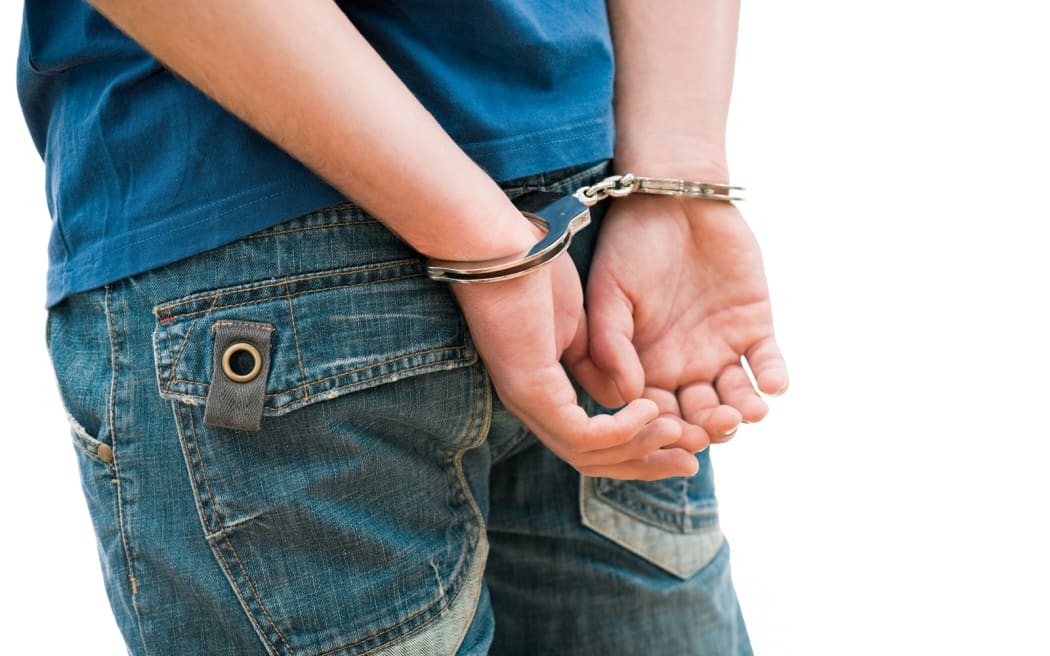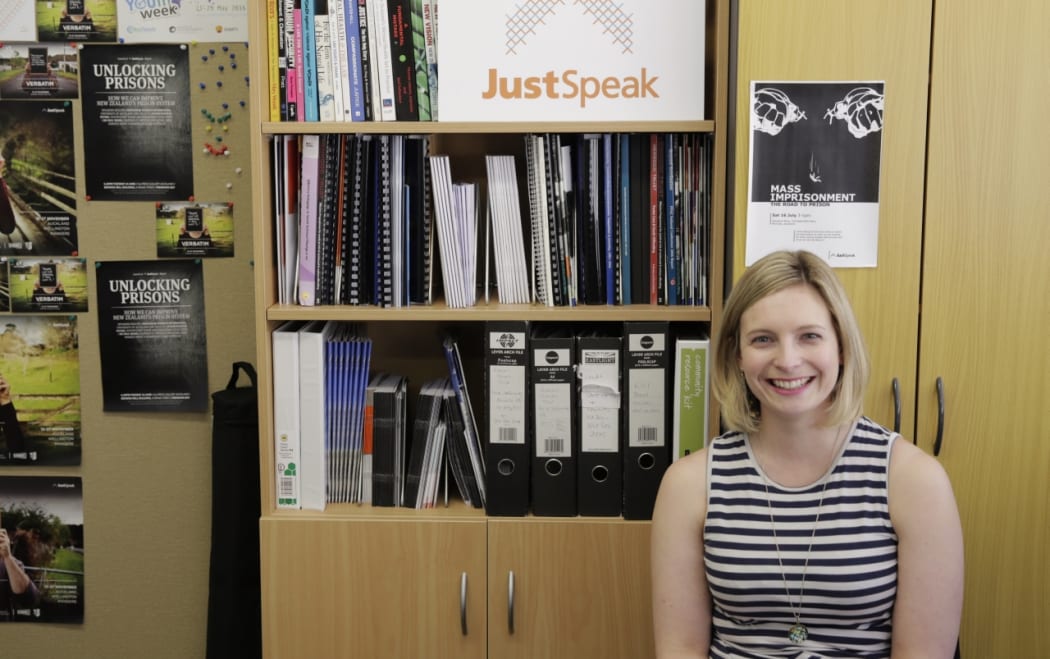The Government is on the brink of a decision that could drastically affect the lives of young offenders.

“We know that once you put a young person is in the adult system, they have really bad outcomes” Photo: 123rf
When you’re 17, it feels like you’re on the edge of adulthood. Just a year away from being able to vote, buy alcohol and cigarettes, get married without your parents’ consent, and even legally purchase fireworks. However, if you commit a crime, the justice system already sees you as a fully-fledged grownup.
Currently, young offenders aged 14 to 16 go through the youth justice system. From the day of their 17th birthday, they’re tried as adults. While groups like the Police Association and Sensible Sentencing Trust think the age should remain the same, pressure is mounting for a change.
More than 30 organisations, including Salvation Army, UNICEF NZ, Youthline, and the Human Rights Lawyers Association have signed an open letter to the Prime Minister calling for the youth justice age to be raised by one year.
There are also thoes who believe the age should match the state care age which was lifted from 17 to 21 by the governent earlier this month.
Youth justice group JustSpeak has started a petition to raise the youth justice age to include all young people up their 21st birthday. Launched last week, it has already gathered close to 3000 signatures.
JustSpeak director Dr Katie Bruce says the longer we keep people out of the adult system the better for everyone.
“We know that once you put a young person in the adult system, they have really bad outcomes,” she says. “Under 20s have a 91 percent chance of being reconvicted after they’re released from prison within two years.”
New Zealand’s youth justice system is world-renowned and much of it comes down to the way it deals with young offenders, Dr Bruce says.
About 80 percent of cases in the youth system never go to court, especially for low-level offences like graffiti and tagging, minor shop lifting or fights at school. For serious or violent crimes, youth can be sent to adult court.
“That won’t change if the age is lifted. Everyone who goes to prison now will still go to prison with the new system,” she says.

Dr Katie Bruce Photo: Mava Enoka / The Wireless
Young people in the youth system usually enter family group conferences where the victim, police and sometimes family members can collectively decide on outcomes. If the victim isn’t happy with the decision, they can veto it.
“In no way is it perfect, but what it does do is focus on the issues the young person is having outside of their offence and how can we support them as well as hold them to account.”
Not only does the system work, there’s science to prove that it’s the fairest way to deal with developing brains, Dr Bruce says.
Last week, MPs in the UK argued that young offenders up to the age of 25 should be kept out of adult prisons because of “irrefutable evidence” that the typical adult male brain is not fully formed until at least the mid-20s.
“We’ve had our youth justice system for 20 years and there’s a lot of evidence about how it’s working. In just the last five to 10 years, we’ve got half the number of young people in our justice system than we used to because we’re able to actually address the reasons they’re there in the first place,” Dr Bruce says.
Children's Commissioner and former Principal Youth Court Judge Andrew Becroft says it’s "illogical and unprincipled" to try a 17 year old as an adult but be able to keep them in state care until they are 21.
But not everyone believes raising the youth justice age is a good move.
The Police Association surveyed 2977 members about the proposed age raise and the results show that the vast majority of those are opposed to the idea.
Police Association president Chris Cahill says he was actually surprised the numbers against the change weren’t higher.
“We end up dealing with a hell of a lot of the top 10 to 20 percent of the bad ones and we understand that raising it is going to increase those bad ones having another year,” he says.
“Without the resources to back up that increase in age, there's some real risks for police and society.”
Estimates for the increased workload range from 25 percent to 50 percent, according to the Police Association and Cahill says police have seen a rise in serious violent offending by youth, especially female youth, in past 5-10 years.
“If I go back to Auckland where I’m from, nightly we’re having serious assaults and aggravated robberies by groups of teenagers, many of them female. It’s the stuff that adults do go to jail for. If we increase [the youth justice age] to 17, it just widens that risk level.”
While he accepts young people’s brains are still developing he disputes the idea that they don’t consider the consequences of their actions when committing crimes.
“We know a hell of a lot of 16-year-olds who, come their 17th birthday, know there are much bigger consequences and change their offending pattern. In fact, that’s why a lot of 17-year-olds get their 16-year-old friends to go steal a car or actually do the robbery.”
The Sensible Sentencing Trust has started a counter-petition calling for the government to keep the youth justice age at 16.
The petition currently has less than 300 signatures. The youth advocate for the organisation, Jess McVicar, says it’s because a lot of people don’t understand the full extent of this issue.
How many more excuses do we need to make for people committing crimes?
“It's a terrifying thought for victims and the wider public if the current age is increased,” she says.
The group “aren’t keen” on the age being raised at all, but are particularly concerned to see the call for it to go up to 21.
“If you’re still committing offences like burglary at 20, you’re probably lost all respect for law, you’ve lost all respect for elders and you’ve lost all respect for other people’s property. How effective is a family group conference going to be?” McVicar says.
The Sensible Sentencing Trust is also calling for the youth justice system to become “fully transparent” in order to hold young offenders accountable for their actions. “The youth court is basically secret. If you’re 20 and you have 10 offences behind you, the employer has a right to know.”
McVicar says the organisation isn’t advocating for more prison sentences, noting that prison is reserved for “hard criminals”, but thinks it’s time for young people victimising others to be dealt with "properly".
“It’s just ridiculous. How many more excuses do we need to make for people committing crimes?”
Sam Haggart, a youth worker at Tūtaki, regularly works with young people who are going through the youth justice system.
Photo: Tūtaki
“At 17, you’re actually not an adult so I don’t think it’s fair that young people are being charged as adults,” she says.
Many of the young people she encounters come from disadvantaged backgrounds and should be given support to change, not punitive measures that could see them stuck in the system indefinitely, she says.
“I had a 14-year-old client who had offended and at the time, he wasn’t enrolled in education and had no support around him. He went through the youth justice system and through that, was referred to Tūtaki. He wasn’t given a criminal record but instead consequences and goals he had to complete.”
“He hasn’t offended again since then and has enrolled into school. I don’t think he’d have that outcome at all if he’d gone through the adult court system.”
Cabinet is expected to release their decision about the youth justice age in the coming weeks.

